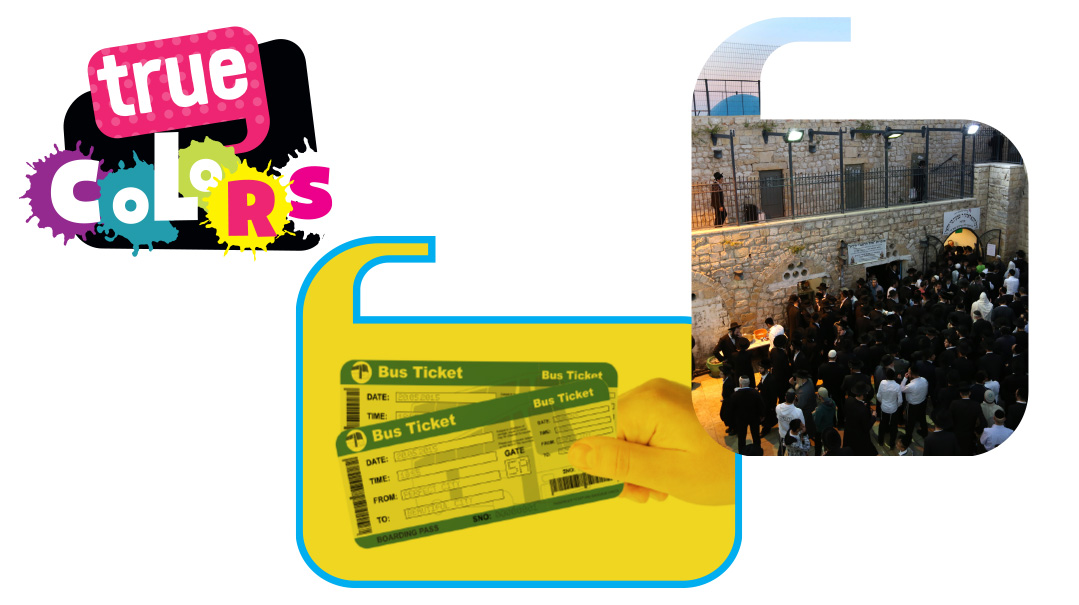Back Home
| May 10, 2022There was a terrible surprise awaiting us there

My name is Elchanan. I’m 12 years old, and I live in Kiryat Sefer.
For years, I’ve been begging my father to take me to Meron on Lag B’omer, but he always refused. He said there were too many people, it was too big a schlep, I had to go to cheder the next morning and we would get home too late at night, and all those grown-up reasons. It was very frustrating to hear from other kids, year after year, all about the excitement at Kever Rashbi.
I wanted to go desperately.
Having little brothers can be annoying. Trust me, I know. But when my brother Moishy got old enough to start begging and pleading, too, it was a good thing. It’s harder for fathers to ignore two boys than to ignore one. At long last, it seemed like my father was going to give in. We were all hanging around the dinner table, eating toasted cheese sandwiches (we have our main meal for lunch, just like our Israeli neighbors, because my parents say it’s healthier). Moishy and I were taking turns explaining why it was absolutely crucial to go to Meron this year. “This is the best year to go,” I said. “Lag B’omer is on Thursday night, so the next day is Erev Shabbos. It’s a short day in cheder. And we always start late on Lag B’omer anyway. Abba, I promise we’ll get up and go to cheder on time!”
Moishy took his turn. “Abba, Yehoshua told me that he davened at Meron last year for his aunt to get married, and she did! He said it’s a really mesugal place to daven. I want to go and daven for Rivky.” That was a good line, I had to admit, because Rivky’s my father’s youngest sister, and she’s already been in shidduchim for a really long time. I decided to play up that theme. “And I also want to daven for my learning,” I said seriously. “My rebbi said that davening for your Torah learning on Lag B’omer is very powerful.”
Abba was starting to look more amused than annoyed, which was an excellent sign. I stepped it up a little. “And imagine how special it will be,” I said, “to spend time together with just me and Moishy. We really enjoy having special, quality time together with you,” I said solemnly. My mother, sitting quietly across the table, covered her twitching lips with her hand.
“And here, Abba, look at this,” Moishy pulled out an advertisement with the local bus company’s logo at the top of the page. “It’s going to be really organized this year. You need to sign up in advance and order tickets in order to get on a bus to Meron. It’s gonna be much calmer and more efficient this year!”
I had to hand it to the kid. He was really bringing up all the right points, arguing almost like an adult, even though he was a year younger than me.
Abba brushed some small crumbs from his beard and looked at my mother. They communicated in their silent parent-speak for a while. Moishy and I sat breathlessly waiting for the final verdict. I had to keep biting my tongue so I wouldn’t start talking again; I’ve learned the hard way that it’s better to just wait sometimes. After what felt like a day and a half, Abba nodded. “Okay,” he said. “I’ll take you to Meron this year.”
Moishy and I whooped and danced around the kitchen until Mommy sent us to go clean up our room and get ready for Masmidim.
We all debated what time we should leave, and finally Abba decided we’d go at 9:00 Lag B’omer night. That way we could spend a few minutes at our local bonfire before heading out for the trip, and we’d arrive at Meron well before midnight, leaving us plenty of time to find and join a hadlakah.
At last, it was Erev Lag B’omer. I came home from cheder quivering with excitement. Moishy and I packed a backpack with water, nosh, Tehillim, and our bus cards. Evening could not come quickly enough.
“Come on, boys,” Abba finally said. We ran down the building’s stairs to Maariv at the shul, and then headed directly to our neighborhood bonfire. We stood near the smokey, hot, crackling flames and sang “Bar Yochai,” but my heart was already in Meron. After a little while, Abba, Moishy and I headed to the masof, which is where we were going to catch our Meron-bound bus.
But there was a terrible surprise awaiting us there.
We got in line for the 9:00 bus. When it was our turn to get on, the sadran checked our tickets. “Sorry,” he said dispassionately, “These tickets aren’t valid.”
“What do you mean, ‘not valid’?!” I spluttered. Abba motioned for me to stay quiet. “Adoni, could you explain what the problem with our tickets is?” Abba asked. The bustle around me seemed to get louder and louder, the kids and their fathers and the bochurim clamoring around us, waiting to get on the buses all lined up and waiting to depart. Yellow-vested sadranim moved around the busy crowd, yelling out directions. Our sadran silently pointed at the time slot on the ticket. We were right that we had ordered tickets for 9:00. The problem was, it was for 9:00 Friday morning. Not 9:00 Thursday night.
We tried, oh, how we tried to change our tickets, to trade our tickets, to convince the bus company they had room for us anyway. Tears stung my eyes, and it wasn’t because of the smokey haze filling the city from tens of bonfires. Moishy cried a little too and wiped his eyes quickly so I wouldn’t catch him tearing up. Abba tried. He didn’t give up. But it seemed as if Hashem himself had closed the doors to all the buses. No one was letting us on any bus.
Two bitterly disappointed boys accompanied Abba back home later that evening. And I can’t promise that I didn’t yell and scream and blame and let out all my anger and frustration at the whole situation and everyone involved. As I got under my covers that night, I still could not believe I was in my own bed in Kiryat Sefer instead of singing at Kever Rashbi.
Pale sunlight filtered through our half-closed trissim early the next morning when Abba and Mommy came to wake me and Moishy up. They sat on our beds and slowly, haltingly, with tears pouring down their faces, told us what had happened in Meron while we slept, safe and comfortable in our beds.
There had been a terrible accident at the kever of Rabi Shimon bar Yochai. So many people had crowded onto the mountain, there wasn’t enough room for everyone to move around safely. People had gotten stuck in a narrow area, and they couldn’t get out. Many people died. Forty-five people. Some of them were very young. All of them were regular people, who just wanted to go to Meron on Lag B’omer. Just like everyone else. Just like us.
My brain felt numb. There was a little buzz, and a lot of silence, as I processed the words my parents were saying. Moishy started crying again, and this time he didn’t try to hide it. Soon I was crying, too. We cried for the people who had been there, and for the people who weren’t going to come back. Mommy cried for the fear of all the families waiting to hear if their loved ones were alright, and she cried with gratitude that her children, and her husband, were right there.
Hashem himself had closed the doors to all the buses. In my anger and disappointment, in the smokey air and dark evening, I hadn’t wanted to see how unnatural it was that we simply could not get on a bus. But in the clear morning, with the sunshine dancing outside my window and my parents and brother crying at my side, I could clearly see how He had guided our every move.
Names and details have been changed to protect privacy
(Originally featured in Mishpacha Jr., Issue 910)
Oops! We could not locate your form.






